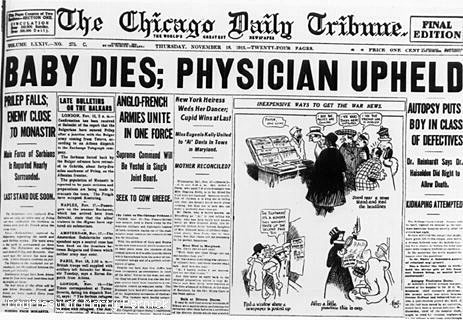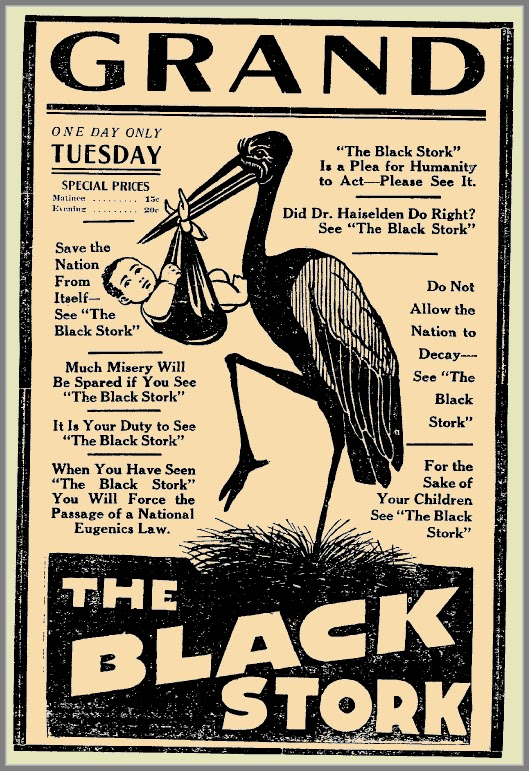
Nigel Farage, saying the unsayable
By Mark Steyn
As I was saying:
Ukip — like Nigel Farage's bar bill at
ten in the evening — will climb a lot higher yet.
And so it did. Sunday's UK election
results were the first since 1910 in which a party other than Conservative or
Labour came out on top in a national vote. That's to say, Nigel Farage did
something nobody from outside the two-party system has done in over a century: he won.
If you don't remember that December 1910
election, Asquith's Liberals came first - but with just one seat more than the
Tories, so they were forced to govern with the support of John Redmond's Irish
nationalists.
In other words, it was another world. The
old British Liberal Party no longer really exists, merged a generation ago into
the modishly opportunist Europhiliac "Liberal Democrats". And nor
does Redmond's Irish Parliamentary Party, which survived in Ulster as the rump
Nationalist Party until the late Seventies, when it merged with some even
rumpier rump and became the Irish Independence Party, which sank to all but
undetectable levels in the Eighties, although for all I know it may still run
the occasional candidate for council seats in Fermanagh.
As I said, another world - in part
because that December 1910 election proved consequential: as the price of his
support, Redmond extracted a third Home Rule bill from the Liberals, and the
rest is misty shamrock-hued history.
This time, unlike 1910, Britons were not
electing a government, but merely members of the European Parliament. The
European Parliament isn't really a parliament, in the sense that it does not
have "legislative initiative", which is a polite why of saying these
guys have no say over anything that matters. And, aside from not being a
parliament, there isn't any "Europe". The more the Eurocrats insist
that their subjects are voting as "European citizens", the more the
horizons shrivel: in the Parliament of Euro-Man, the French vote for French
nationalists, Hungarians for Hungarian nationalists, Greeks for Greek
nationalists, etc. There is no European polity, which is why there should be no
European parliament.
My old boss Boris Johnson, now the Mayor
of London and eying Downing Street next, analyzed the vote thus:
To a greater or lesser extent, the story of this Euro-election has been the rise of the minor parties – some of them bizarre, some of them downright potty, but all of them united by a visceral dislike of the EU bureaucracy: its arrogance, its remoteness, its expense, its endless condescension and its manic and messianic belief in its right to legislate for all 500 million people in the EU.There is a kind of peasants' revolt going on, a jacquerie. From Dublin to Lublin, from Portugal to Pomerania, the pitchfork-wielding populists are converging on the Breydel building in Brussels – drunk on local hooch and chanting nationalist slogans and preparing to give the federalist machinery a good old kicking with their authentically folkloric clogs.
Lovely stuff, but I don't think it's
quite right. Yes, Ukip voters hate the EU bureaucracy, but the only reason the
EU is in a position to put the screws to them is because the British political
class gave away British sovereignty to Brussels. And Ukip wants it back. So, in
that sense, it's not so very different from 1910. Like John Redmond and his
Irish caucus, Nigel Farage leads a nationalist party and, like Redmond with
Asquith, he'd be happy to enter into an arrangement with the Prime Minister in
exchange for a Home Rule bill.
But none of the Westminster parties is
serious about Home Rule for Britain - which is to say withdrawal from the EU,
or at any rate the kind of meaningful clawback that would dramatically reduce
Brussels' jurisdiction over the United Kingdom. Dear old Boris doesn't seem to
get that everything he says about the EU bureaucracy - "its arrogance, its
remoteness, its expense, its endless condescension" - is exactly how
Farage's voters feel about the Conservative-Liberal-Labour-Media Permanent
Political Class in London. For the most recent examples of arrogance,
remoteness and condescension, see the coverage of Ukip throughout this election
campaign.
Is that going to change? On Friday, David
Cameron was insisting that he shared voters' frustration with David
Cameron. If he were Obama, Cameron would say that no one is madder than Cameron
at all the stuff this Cameron guy's been pulling. But by Monday the Prime Minister
had recovered:
David Cameron has attacked Nigel Farage for claiming to be a "normal bloke down the pub" when he is in reality a "consummate politician" who is "supremely tactical".
This is a relatively sophisticated line
of attack from Cameron, who had previously dismissed Ukip as a bunch of
"fruitcakes, loonies and closet racists". Evidently, it has dawned on
him that what marks a chap as an obvious "fruitcake" to all the smart
people in "the Westminster village" strikes less perceptive fellows
out there in the hinterlands as a "normal bloke".
Let's stipulate that nobody who prospers
among the creeps and misfits who infest politics in an advanced western
democracy these days can be that much of a "normal bloke". That said,
on the one occasion I've met Farage, he struck me as more normal than most,
and, even if he isn't a "normal bloke", he gives a much more
convincing impression of one than Cameron does. As I wrote last year:
After Ukip cost the Tories control of Oxfordshire County Council, that body's longtime leader offered some advice to the Prime Minister: "You have to work out how to be one of us without affectation." Good idea; maybe we can focus-group it.
As for the "down the pub"
boozing and puffing, if that's all a put-on, Farage is in seriously deep cover.
But there too the Oxfordshire Tory chappie made a good point about him:
"He is unafraid to be filmed with a pint of beer and a cigarette in his hand when all of our media training tells us to eschew either image."
The "normal bloke" terrain was
consciously abandoned by the tripartisan consultant class from which Cameron
emerged. But it's more than just a few stylistic tics like 14 pints every
photo-op. As an example of normal blokiness, consider Farage's reaction when,
late in the campaign, a Ukip candidate was revealed to have once described
homosexuality as "abnormal". The Ukipper in question, Roger Helmer,
is 70, and Farage responded to the ensuing "controversy" by saying
that "if we asked the 70s and over in this country how they felt about it
[homosexuality], most of them still feel uncomfortable."
That's a very normal-blokey reaction:
He's not saying he feels like that, he's just saying Helmer grew up at a time
when homosexuality was illegal in Britain, and in a fast-moving world you can't
expect everyone to stay au courant, and it's no big deal, and certainly
no reason to hound the chap from public life. Farage's response was not just
decent and humane, but, indeed, genuinely "diverse" and
"tolerant". Can you ever in your life imagine Cameron or Clegg or
Milliband saying such a thing? Or would they be standing there po-faced droning
on all finger-waggingly about how such bigotry has no place in our politics
today? And isn't that sort of thing part of the reason why not only do they not
sound like "normal blokes down the pub" but, in fact, come over as
deeply weird blokes? A day or two before the election, Cameron was huffin' and
a-puffin' that Britain had had enough of the "appalling" Ukip. It
must be awfully tiring going around being fakily indignant about piffle all day
long.
But perhaps not, if you never address
anything of actual importance to voters.
I see I've quoted my year-old Farage profile a couple of times already, so I
might as well make a feature of it. I've no reason to believe that anyone who
matters in the three "mainstream" parties or even my old colleagues
in Fleet Street ever read the piece, which is their loss, because they (the
politico-media class) might not have waged this election so ineptly. For
example, Steyn in 2013:
Farage is too funny to make a convincing fascist, but, with the great unwashed pounding on the fence of their gated community, the Westminster village have redoubled their efforts. To be sure, as with any fledgling party whose candidate-selection process lacks the ruthless filtering of the Big Three, Ukip's members are somewhat variable: One recently expressed an antipathy toward women in trousers, another was glimpsed in a cell-phone photograph either doing a Nazi salute (albeit sitting down and with his left hand) or reaching out to seize the phone in mid-snap. Considering the oppo research launched against Ukip by all three major parties plus the media, these are thin pickings.
And, as the case of Mr Helmer
demonstrated, they've remained thin - and entirely ineffective. So why not stop
the labeling? Yes, this or that candidate will once in a while say something
capable of being presented as "racist" or "transphobic" if
you all work yourselves up to get sufficiently "appalled" over it,
but it's never going to be enough. You can't keep calling these guys
"fringe" "extremists" when they get more votes than you. So
instead of shrieking about "fruitcakes" and "loonies" why
not try engaging on the issues? Me last year again:
The Tories in particular might be better off thinking seriously about Ukip's appeal: If you reckon things are grand just as they are, having a choice between three indistinguishable "social democrat" parties — as Farage calls Labour, Liberal, and Conservative — is fine. If you don't think things are grand, then it seems increasingly strange and, indeed, unhealthy that not one of the three "mainstream" parties is prepared to support policies that command the support of half the electorate (EU withdrawal) and significantly more than half (serious border enforcement). Underneath the contempt for UKIP lies a careless assumption by the antiseptic metropolitan elite that their condescension is universally shared...
Talking to themselves across the dinner
tables of Highgate and Holland Park, the ConLibLabMedia United Front gave
themselves a bad case of Pauline Kael Syndrome (the New Yorker critic
supposedly bewildered by Nixon's victory because no one she knew had voted for
him). There is a danger here for the Labour Party, too, which in some ways had
a worse night than the Tories. Me from a year ago:
The Britain to which Ukip speaks resonates beyond the 19th hole. It was not just that the party won an unprecedented number of seats in May's elections, but that they achieved more second-place finishes than anybody else. Beyond the leafy suburbs and stockbroker counties, in parts of Britain where the traditional working class has been hung out to dry by Labour in pursuit of more fashionable demographics, Ukip has significant appeal.
And so it proved. The Tory vote fell by
3.8 per cent, but the Ukip vote went up by 11 per cent. Which means they took
votes from the other parties, too. Labour likes the idea of Ukip as a
right-wing vote-splitter, but once it starts eating into their own base all
bets are off. And last week Ukip proved it could do that just enough to make a
difference.
The Westminster system is implicitly
designed for two players: one to be the Government, one to be the Loyal
Opposition. Until the 20th century, other than the various transient Irish Home
Rule parties, there were literally only two parties. In that 1910 election, a
fledgling Labour came fourth. Within a decade and a half, they'd displaced the
Liberals as the alternative to the Tories, and the Libs never again held power
until Cameron so bungled the last election that he was forced to form a
coalition with them. It's obviously premature to suggest that Ukip will replace
the Conservative Party, but I'd say we're now in for an era of four-party
politics at Westminster.
And the reason for that is that (per
Boris) in their "arrogance", "remoteness" and "endless
condescension" the other three parties all sound the same.
So in a way it's still a two-party
system.
Related Reading:
The Telegraph: Attention Toffs & Muffins: London-land Can’t Ignore This Protest...A Tempest In A Teapot, It is Not.
UKIP Victory Sends A Message To EU's Elites About Failure Of Big Government
Are We All Racists Now?
UKIP’s Tremor





